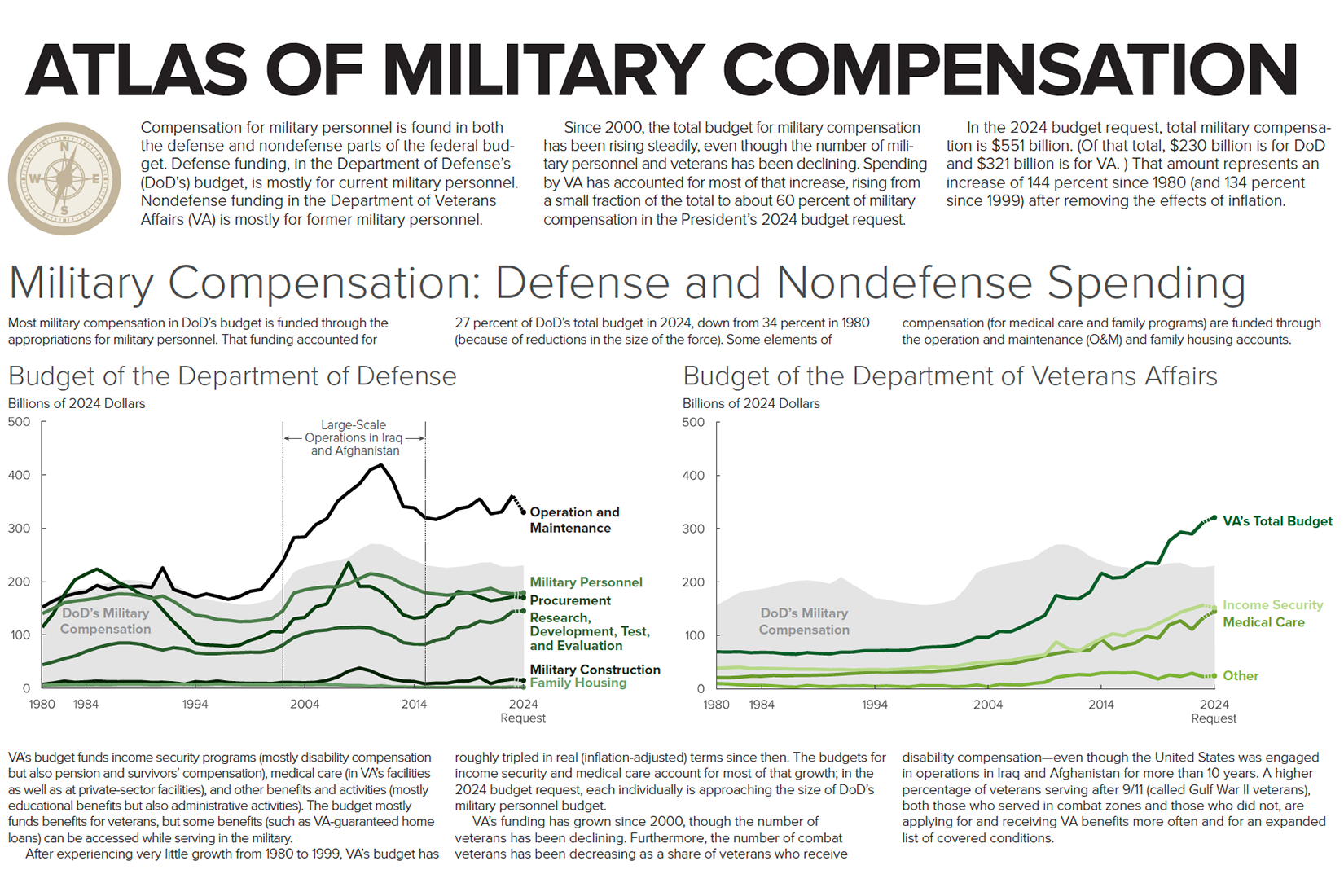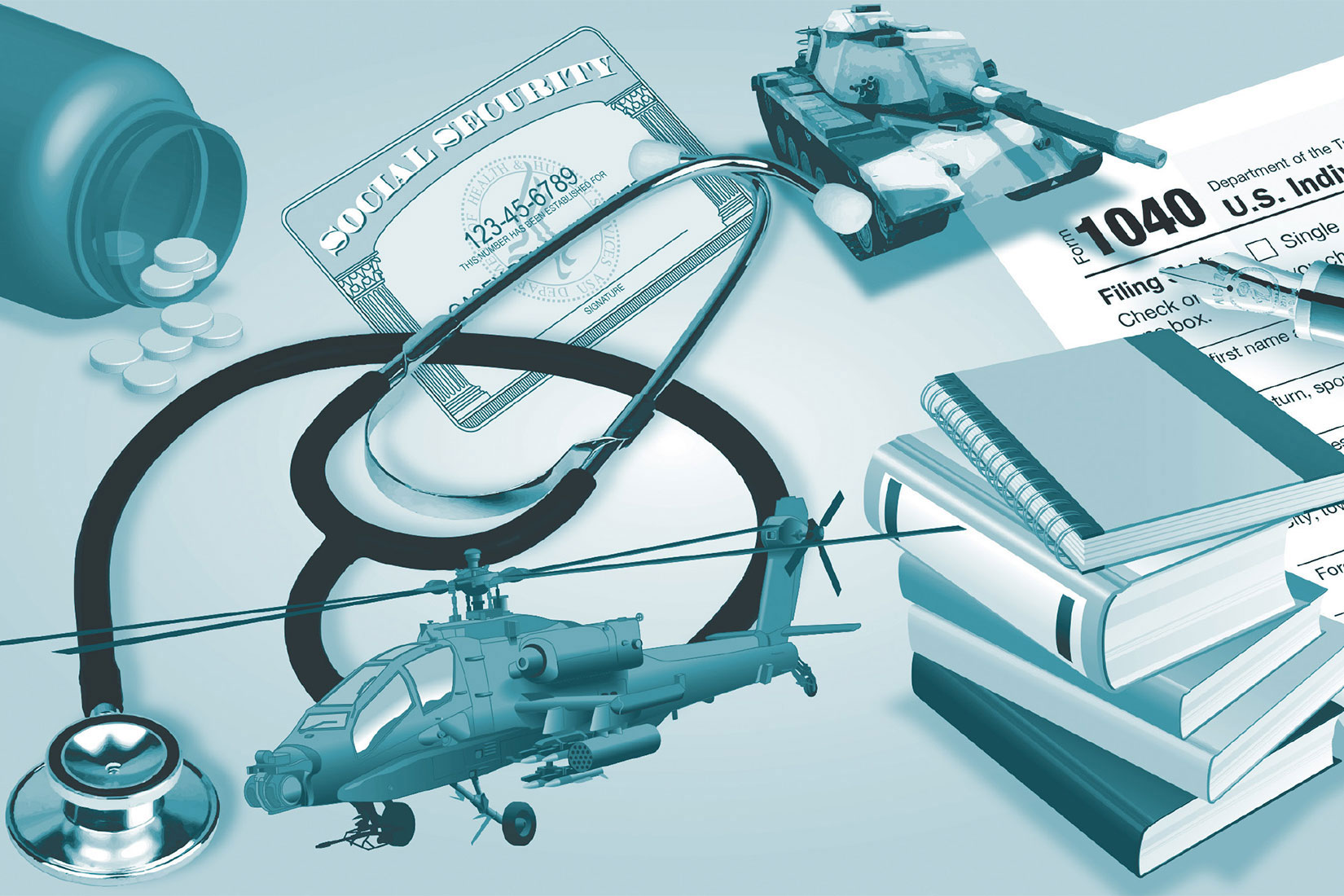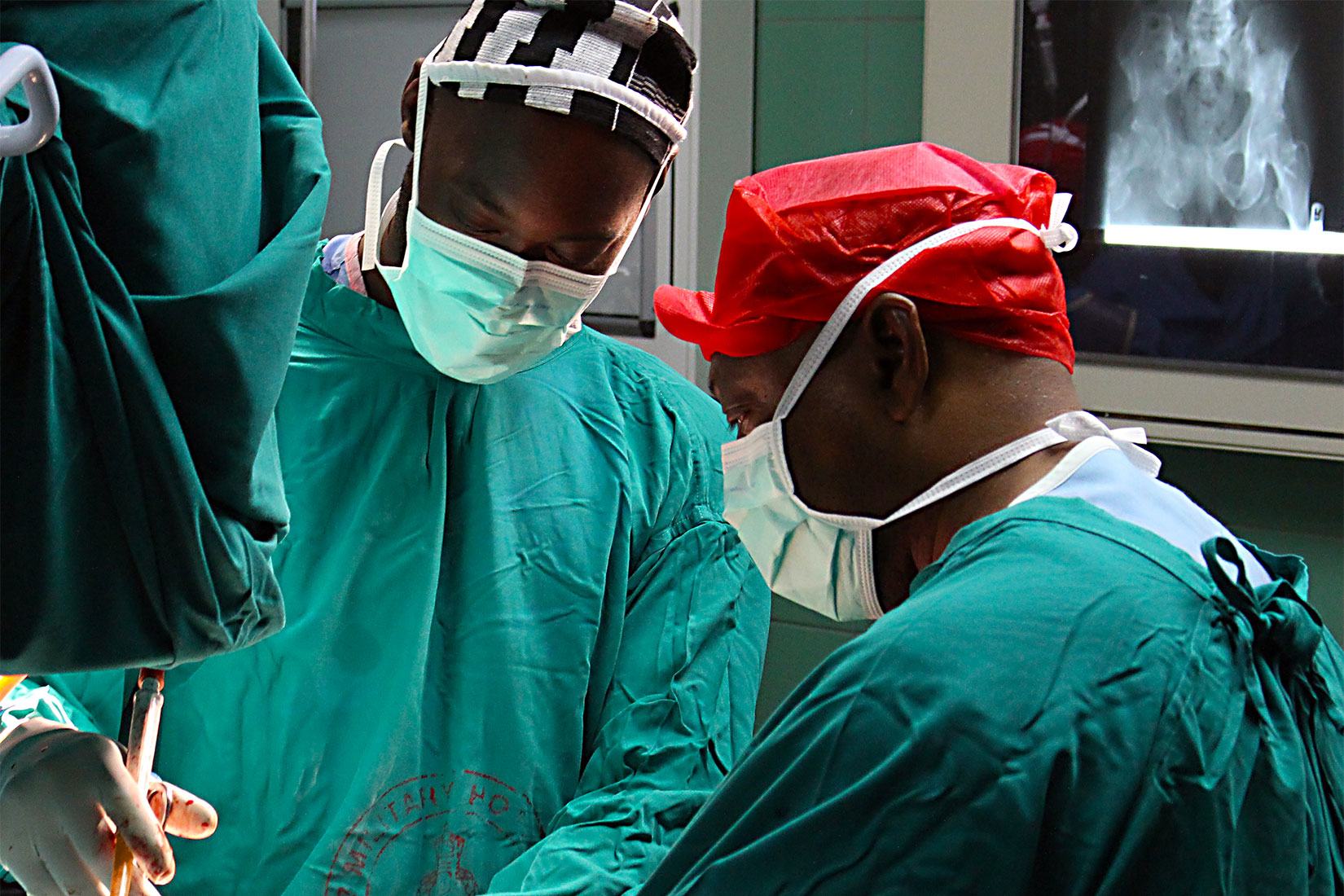CBO compared the earnings, personal income, and household income of working-age male veterans who received disability payments from the Department of Veterans Affairs with those of veterans who did not receive such payments.
Military and Veterans' Health Care
- Graphic
In the President’s 2024 budget request, total military compensation is $551 billion, including veterans' benefits. That amount represents an increase of 134 percent since 1999 after removing the effects of inflation.
- Report
CBO issues a volume that contains short descriptions of 59 policy options that would each reduce the federal budget deficit by less than $300 billion over the next 10 years.
- Report
CBO describes how the Department of Veterans Affairs provides health care to many veterans through the Veterans Community Care Program and how that program has affected veterans’ access to care and other outcomes.
- Report
To help assess budgetary risks, CBO has projected spending by the Department of Veterans Affairs through 2028 under three scenarios, a modified version of CBO’s baseline and two other scenarios involving more rapid spending growth.
- Report
CBO examined possible changes to the Department of Defense’s Military Health System, analyzing the effects of those changes on the federal budget, the quality of military health care, and preparedness for wartime missions.
- Report
Recent legislation calls for the Veterans Health Administration to expand the availability of health care to veterans. Research suggests that VHA-provided care has been cheaper than private-sector care, but future costs are uncertain.








